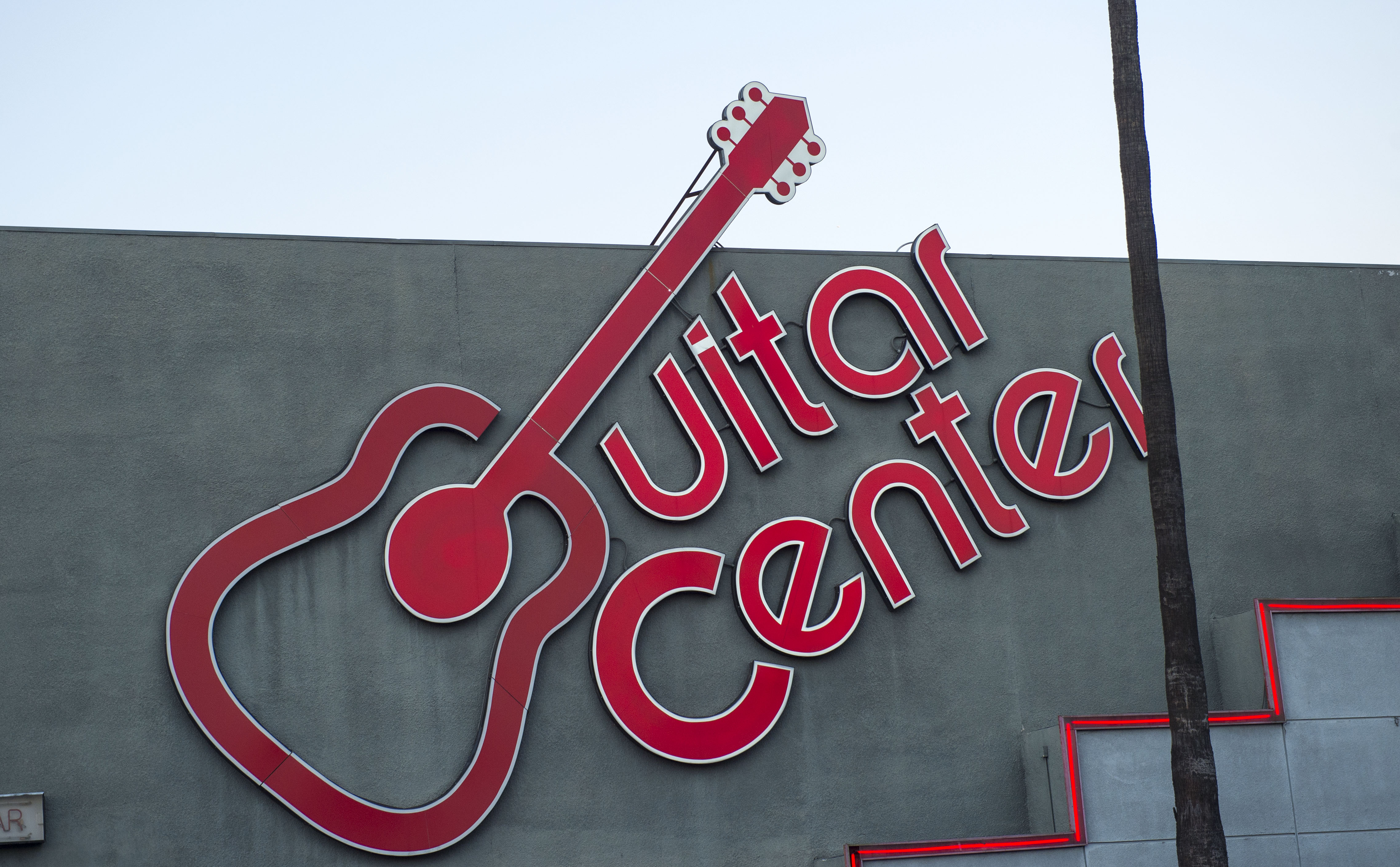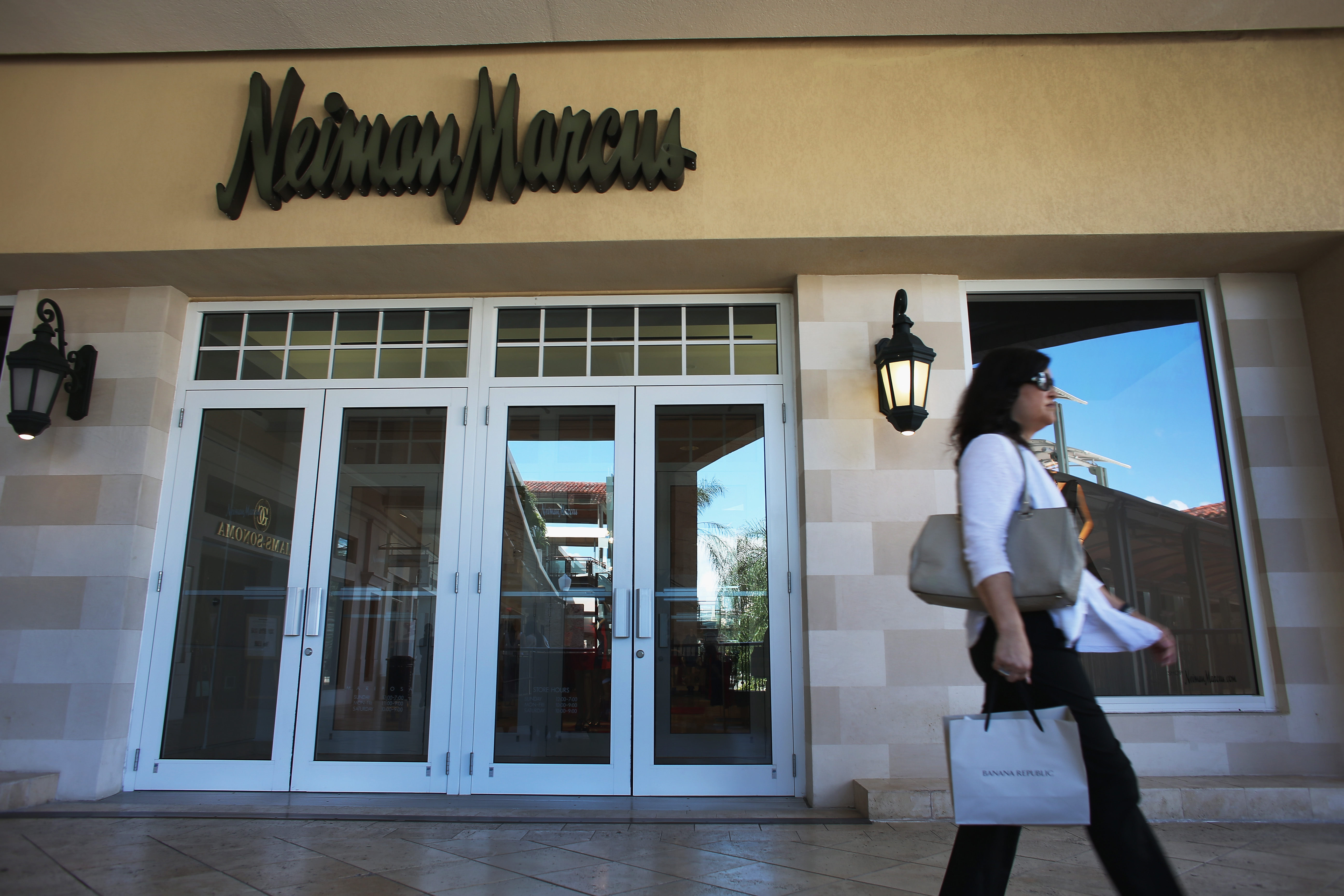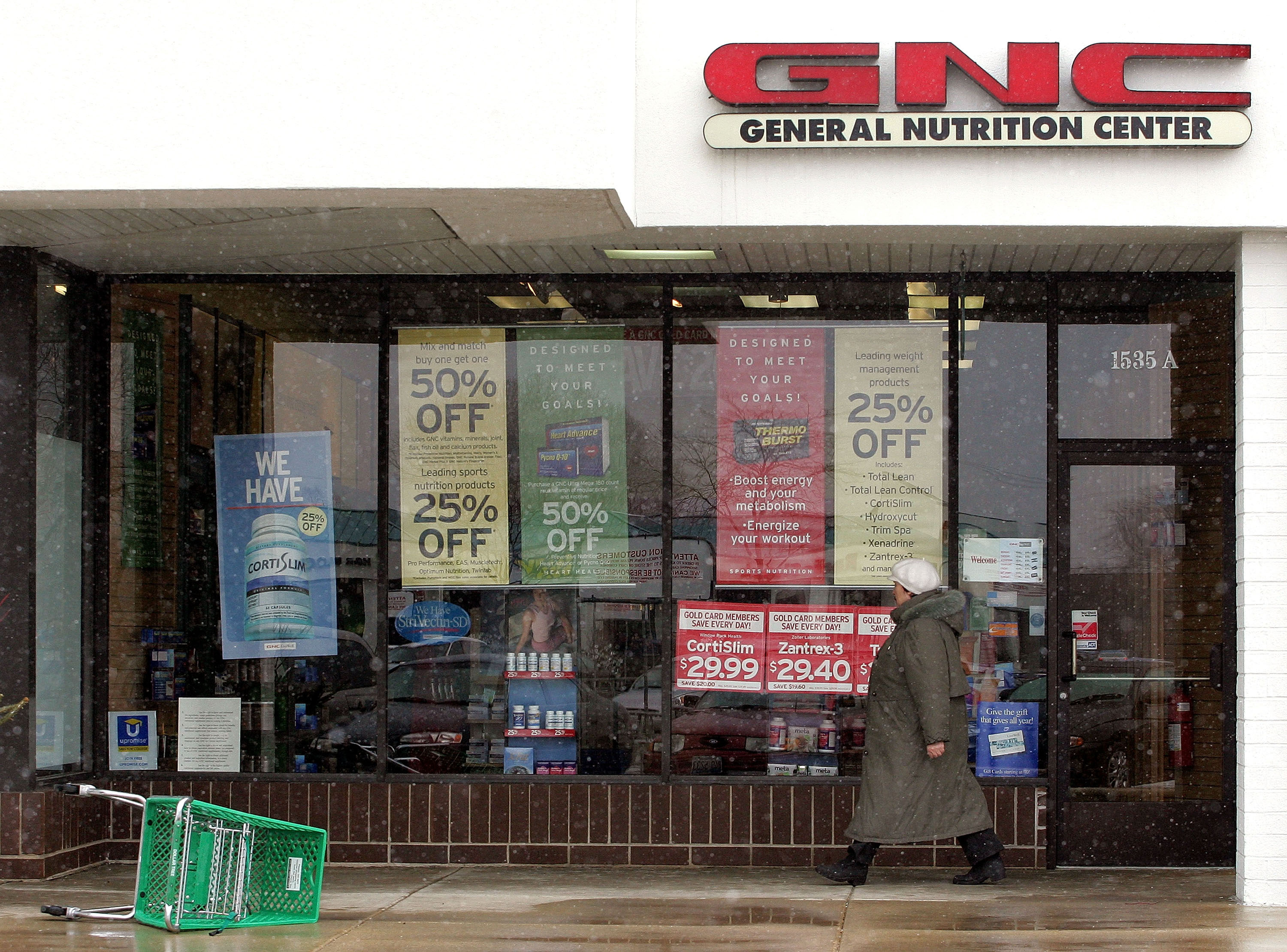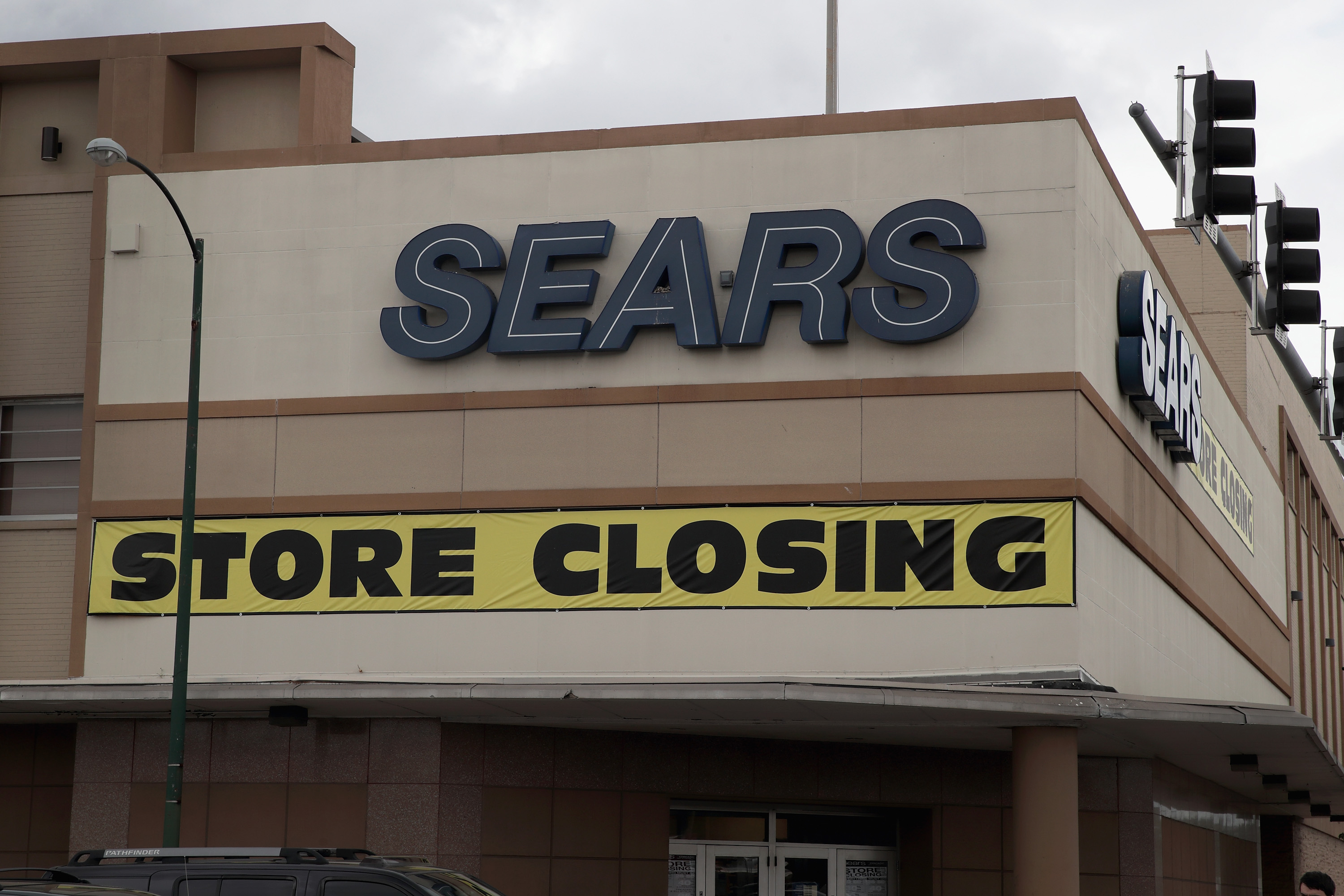As holiday revelers put the finishing touches on their gift lists, some of the stores where they've been shopping may face a rough new year ahead.
The number of U.S. retail and apparel companies at potential risk of defaulting on their debts or seeking bankruptcy court protection continues to grow, according to an analysis by rating agency Moody's for USA TODAY. The list surpasses levels reached during the last recession and may signal worsening financial struggles in 2018.
Facing competition from online retail giants Amazon and Walmart along with low levels of cash, companies such as Sears and Kmart owner Sears Holdings, preppy apparel retailer J. Crew Group, teen accessories seller Claire's Stores and nearly two dozen other retailers had some of the lowest credit ratings issued by Moody's as of mid-December.
"You could throw a dart at that board and basically hit somebody who's defaulting" on company debt "or filing" for bankruptcy court protection, said Charles O'Shea, senior retail analyst for Moody's Investors Service.
Rating companies' distressed lists historically have served as a potential early warning for consumers and investors. Five U.S. firms named on a Moody's distressed retailer list in February filed for bankruptcy court protection during 2017: Gymboree, Rue21, True Religion Apparel, Charming Charlie and Payless ShoeSource
HEIGHTENED DISTRESS
Low ratings reflect heavy debt loads and low amounts of available cash as retail chains struggle with shoppers shifting from physical stores to online buying.
SOURCE Moody's Investors Service - Data as of 12/13/17, Bloomberg
Credit: KARL GELLES, USA TODAY
As holiday revelers put the finishing touches on their gift lists, some of the stores where they've been shopping may face a rough new year ahead.
The number of U.S. retail and apparel companies at potential risk of defaulting on their debts or seeking bankruptcy court protection continues to grow, according to an analysis by rating agency Moody's for USA TODAY. The list surpasses levels reached during the last recession and may signal worsening financial struggles in 2018.
Facing competition from online retail giants Amazon and Walmart along with low levels of cash, companies such as Sears and Kmart owner Sears Holdings, preppy apparel retailer J. Crew Group, teen accessories seller Claire's Stores and nearly two dozen other retailers had some of the lowest credit ratings issued by Moody's as of mid-December.
"You could throw a dart at that board and basically hit somebody who's defaulting" on company debt "or filing" for bankruptcy court protection, said Charles O'Shea, senior retail analyst for Moody's Investors Service.
Rating companies' distressed lists historically have served as a potential early warning for consumers and investors. Five U.S. firms named on a Moody's distressed retailer list in February filed for bankruptcy court protection during 2017: Gymboree, Rue21, True Religion Apparel, Charming Charlie and Payless ShoeSource
Moody's competitor S&P Global Ratings issued similarly downbeat news for the store operators in a late November report that rated the retail and restaurants sector as the most distressed in the U.S.
"The unusual thing is this is happening in a macro environment that's pretty good for retailers. Consumers are spending," O'Shea said. "It was a very different environment during the Great Recession."
The number of distressed retailers defaulting on debts during 2017 has remained below defaults for the oil and gas industry, said Diane Vazza, head of global fixed income research at S&P Global. Retail defaults could accelerate in 2018 if companies face refinancing difficulties, she said.
Beyond rising e-commerce competition, what's hurting the distressed retailers?
High debt
Heavy borrowing, followed by looming refinancing and repayment deadlines, can make it more difficult for traditional retailers with physical stores to execute the pivot to e-commerce needed to compete with online rivals that are increasingly favored by U.S. consumers.
Toys 'R' Us filed for bankruptcy protection in September, saying it needed help dealing with $5 billion in long-term debt that cost the retailer roughly $400 million to service each year. The heavy debt load made it difficult to maintain the upkeep and condition of its stores, provide faster shipping options and to offer a subscription-based delivery service, Toys R Us Chairman and CEO David Brandon said in a bankruptcy court declaration.
Low cash
Charming Charlie, a Houston-based women's fashion accessories seller, debuted in 2004. But like many retailers, the company cited difficulty dealing with the U.S. consumer shift away from traditional stores.
A bankruptcy court declaration by Robert Adamek, the company's chief financial officer, said the sweeping change was made worse by merchandising miscalculations, an overly broad vendor base and other issues that created a funding crisis.
The combined problems left Charming Charlie with less than $1 million in cash on hand and just $1.8 million available under a revolving credit line, Adamek said in the declaration. Business research company D&B Hoovers estimated the privately-held company at one point had $675.7 million in revenue.
"Simply put, Charming Charlie is out of cash to responsibly operate its business," Adamek said in the court declaration.
Here are snapshots of three retailers on the Moody's distressed list:
Guitar Center

The world's largest retailer of musical instruments has roughly 18 months to refinance more than $900 million in debt scheduled to mature in 2019, Moody's said in September. The rating company said it expects the California-based company's operations will remain stable. However, approximately 1.07 million electric guitars were sold in the U.S. in 2016, a nearly 36% drop from 2005, according to Statista, an online statistics, market research and intelligence portal. One potential bright sign: The Washington Post reported that young girls hoping to emulate guitar-playing music star Taylor Swift are crowding a music academy in Arizona.
Neiman Marcus Group

Moody's downgraded the Dallas-based luxury retailer's rating in March, reflecting continuing weakness in Neiman Marcus' financial results as it faces e-commerce competition and changing consumer preferences. Moody's also cited the company's hiring of a financial adviser to evaluate "strategic alternatives," a move that "signals the likelihood of its capital structure being addressed" before the company's first significant debt maturity in Oct. 2020.
General Nutrition Centers

Shares of the specialty retailer of vitamins, health and nutrition supplements and other products fell more than 18% in November as the Pittsburgh-based company proposed a senior notes debt offering that would be used to prepay its existing credit facility and pay for general corporate purposes. GNC withdrew the offer in early December, saying the terms offered were "not sufficiently attractive" for the company to move forward. GNC simultaneously retained investment bank Goldman Sachs to help it analyze alternatives. Moody's downgraded all GNC ratings in March to reflect the company's "challenge to improve its marketing positioning in the face of deteriorating operating performance."
Follow USA TODAY reporter Kevin McCoy on Twitter: @kmccoynyc






